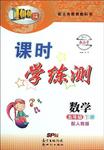题目内容
about tea. People in Britain were much slower in finding out what tea was like, mainly because tea was very
expensive. It could not be bought in shops and even those people who could afford to have it sent from
Holland did so only because it was a fashionable curiosity. Some of them were not sure how to use it. They
thought it was a vegetable and tried cooking the leaves. Then they served them mixed with butter and salt.
They soon discovered their mistake but many people used to spread the used tea leaves on bread and give
them to their children as sandwiches. Tea remained scarce and very expensive in England until the ships of
the East In-dia Company began to bring it direct from China early in the seventeenth century. During the next
few years so much tea came into the country that the price fell and many people could af-ford to buy it. At the
same time people on the Continent were becoming more and more fond of tea. Until then tea had been drunk
without milk in it, but one day a famous French lady named Madame de Sevigne decided to see what tea tasted
like when milk was added. She found it so pleasant that she would never again drink it without milk. Because
she was such a great lady her friends thought they must copy everything she did, so they also drank their tea
with milk in it. Slowly this habit spread until it reached England and today only very few Brit-ons (British
people) drink tea without milk. At first, tea was usually drunk after dinner in the evening. No one ever thought
of drinking tea in the afternoon until a duchess (公爵夫人) found that a cup of tea and a piece of cake at three
or four o'clock stopped her getting" a sinking feeling" as she called it. She invited her friends to have this new
meal with her and so, tea-time was born.
B. Tea reached Britain from Holland.
C. The Britons were the first people in Europe who drank tea.
D. It was not until the 17th century that the Britons had tea.
B. how tea became a popular drink in Britain
C. how the Britons got the habit of drinking tea
D. how tea-time was born
B. in sixteenth century
C. in seventeenth century
D. in the late seventeenth century
influence of _________.
B. the ancient Chinese
C. the upper social class
D. people in Holland

 百年学典课时学练测系列答案
百年学典课时学练测系列答案
| |||||||||||||||||||||||||||||||||||||||||||||||||||||||||||||||||||||||||